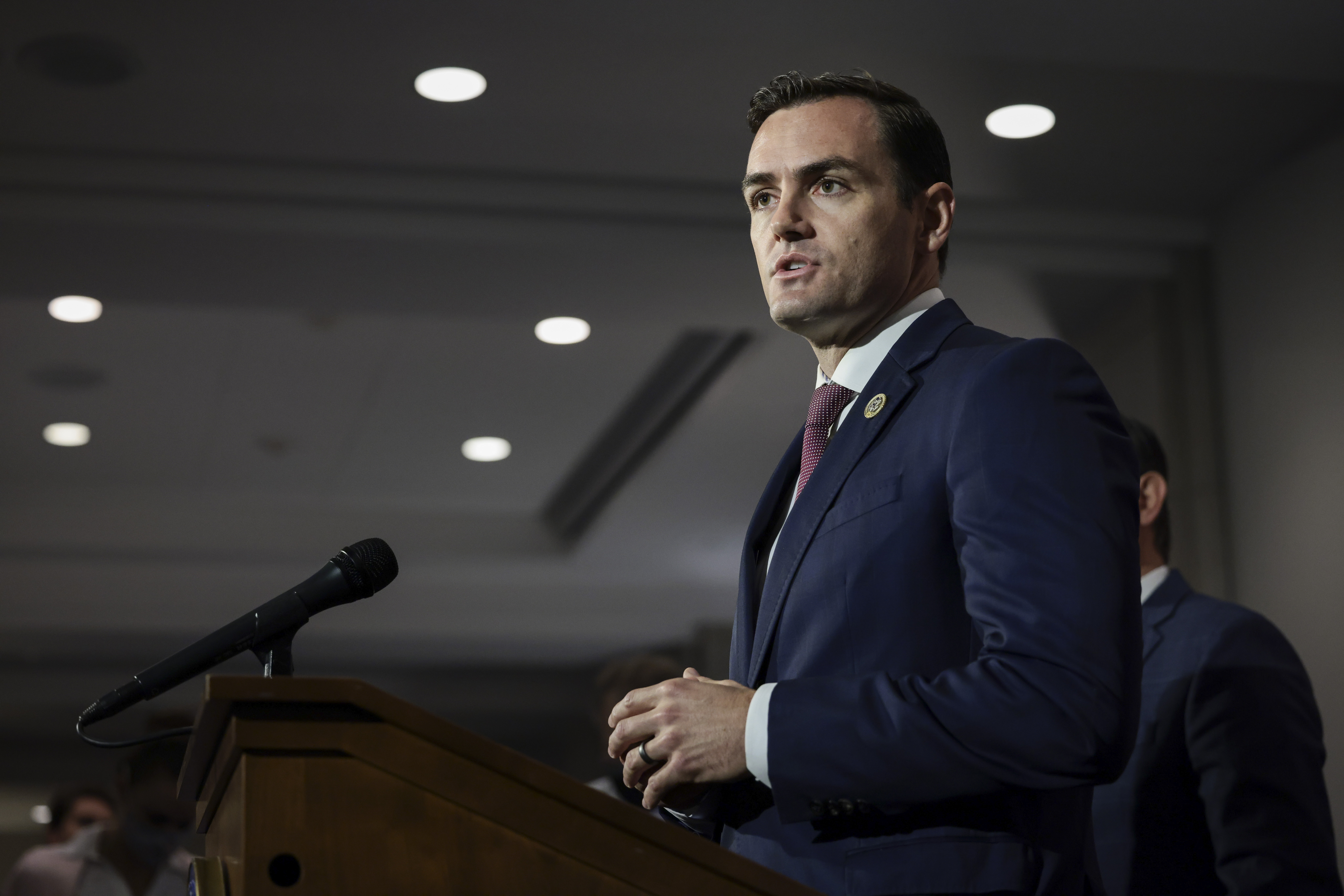
Two House GOP committee chairs are launching a probe into Ford Motor Company's agreement with a Chinese battery company — prompting renewed scrutiny into U.S. corporate links to China amid a boom in domestic clean energy manufacturing.
Ford announced an agreement with Contemporary Amperex Technology Co., Limited, or CATL, in February for its new $3.5 billion battery plant in Michigan. Under the structure of the agreement, Ford said it would manufacture the battery cells using knowledge and services provided by CATL.
But in a new letter Friday to Ford CEO Jim Farley, Mike Gallagher (R-Wis.), who chairs the House Select Committee on the Chinese Communist Party, and Jason Smith (R-Mo.), the chair of the Ways and Means Committee, questioned the licensing agreement, CATL’s alleged ties to forced labor and whether the jobs created under the deal will flow to China.
The continued focus on the battery agreement echoes broader bipartisan concerns on Capitol Hill about China’s influence on domestic supply chains as the U.S. transitions away from fossil fuels toward green technologies that China has long dominated.
"Ford has argued that the deal will create thousands of American jobs, further Ford’s 'commitments to sustainability and human rights,' and lead to American battery technology advancements. But newly discovered information raises serious questions about each claim," the pair wrote.
The letter alleges the new information suggests a “significant portion” of the U.S. jobs created under the agreement will be given to citizens of China, that CATL took steps to maintain effective control while appearing to divest its ownership stake in companies based in the Xinjiang region allegedly tied to forced labor practices and concerning the structure of the deal itself.
"Rather than developing American technology, we are concerned that the deal could simply facilitate the partial onshoring of [People’s Republic of China]-controlled battery technology, raw materials, and employees while collecting tax credits and flowing funds back to CATL through the licensing agreement," they wrote.
In the letter, the two chairs also request documents and communications, including a copy of the licensing agreement between Ford and CATL and any related documents, as well as communications between Ford and the Biden administration on the licensing agreement and any "achievable tax credits."
The Treasury Department has released initial guidance on the new electric vehicle tax credit under the Inflation Reduction Act, but questions loom on which companies' vehicles could be barred from receiving the consumer credit because of their connections to China.
A spokesperson for Ford said in an emailed response that the company had received the letter, is reviewing it and "look[s] forward to responding."
The company reiterated it will "own and run" the new battery plant in Michigan, instead of building a battery plant elsewhere or exclusively importing batteries from China. It touted the 2,500 new U.S. jobs that will help strengthen domestic manufacturing and supply chains, as well as reduce carbon emissions.
Gallagher and Smith's letter said they'd "learned that several hundred" of the 2,500 jobs created under the deal will be given to CATL employees from China, who will be in charge of setting up and maintaining the equipment and that the licensing agreement will maintain Chinese employees at the plant until about 2038.
But Ford disputed that claim on Friday, saying it will have "a select number" of CATL technical experts on site and "these workers will not be counted among the 2,500 new jobs created by this project."
The GOP chairs are far from the first lawmakers to question the Ford agreement.
Sen. Marco Rubio (R-Fla.) also blasted the deal in a February letter and introduced a related bill to block tax credits from applying to a corporation that relies on technology via a licensing agreement with a foreign entity of concern, like a state-backed Chinese company.
Senate Energy and Natural Resources Chair Joe Manchin (D-W.Va.) — who helped author the vehicle sourcing requirements of the IRA — has also questioned the agreement.
The Biden administration has pushed to build out domestic manufacturing for clean energy technologies, but it has acknowledged that the transition will include participation by Chinese companies.
from Politics, Policy, Political News Top Stories https://ift.tt/rN6d72H
via IFTTT






0 comments:
Post a Comment